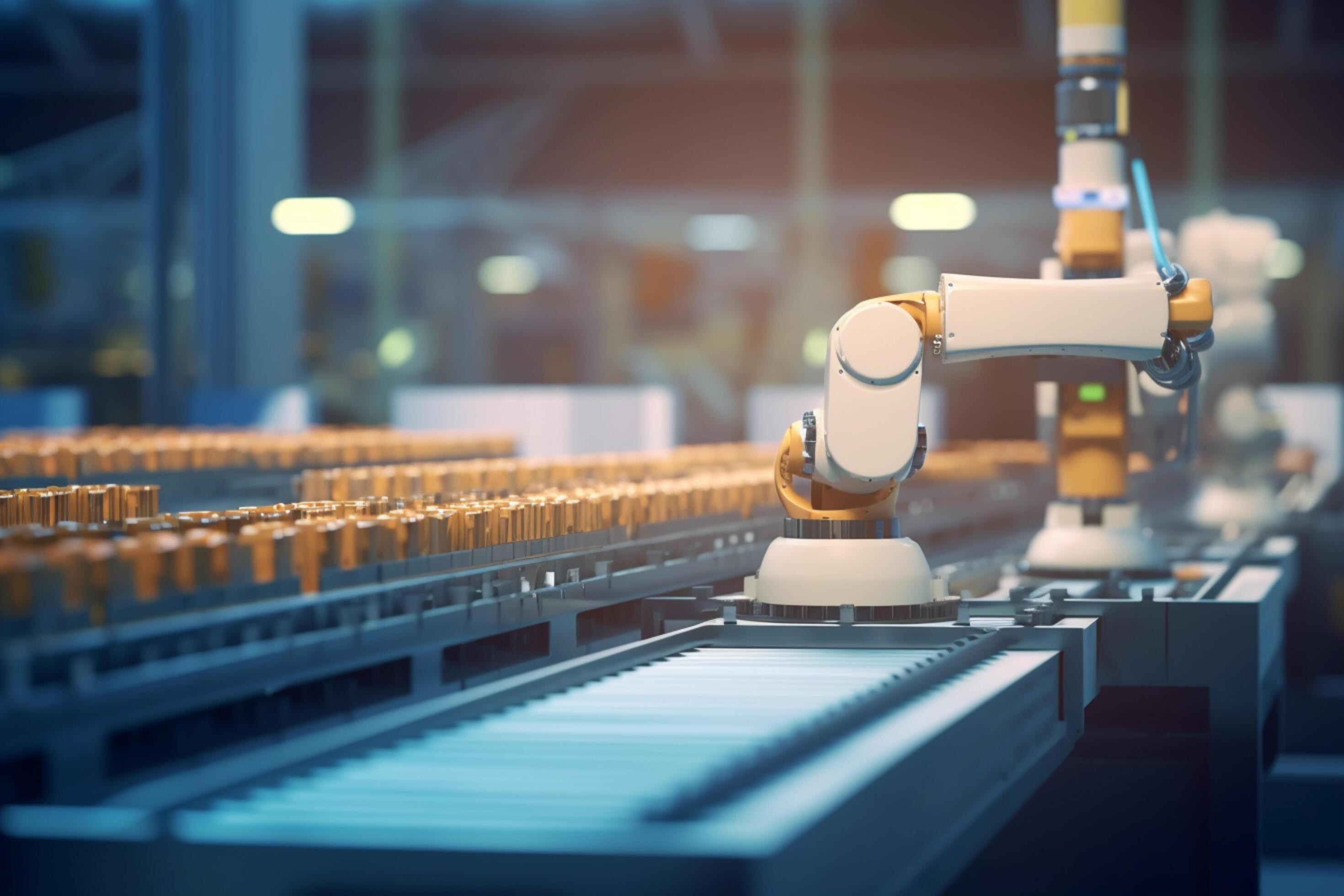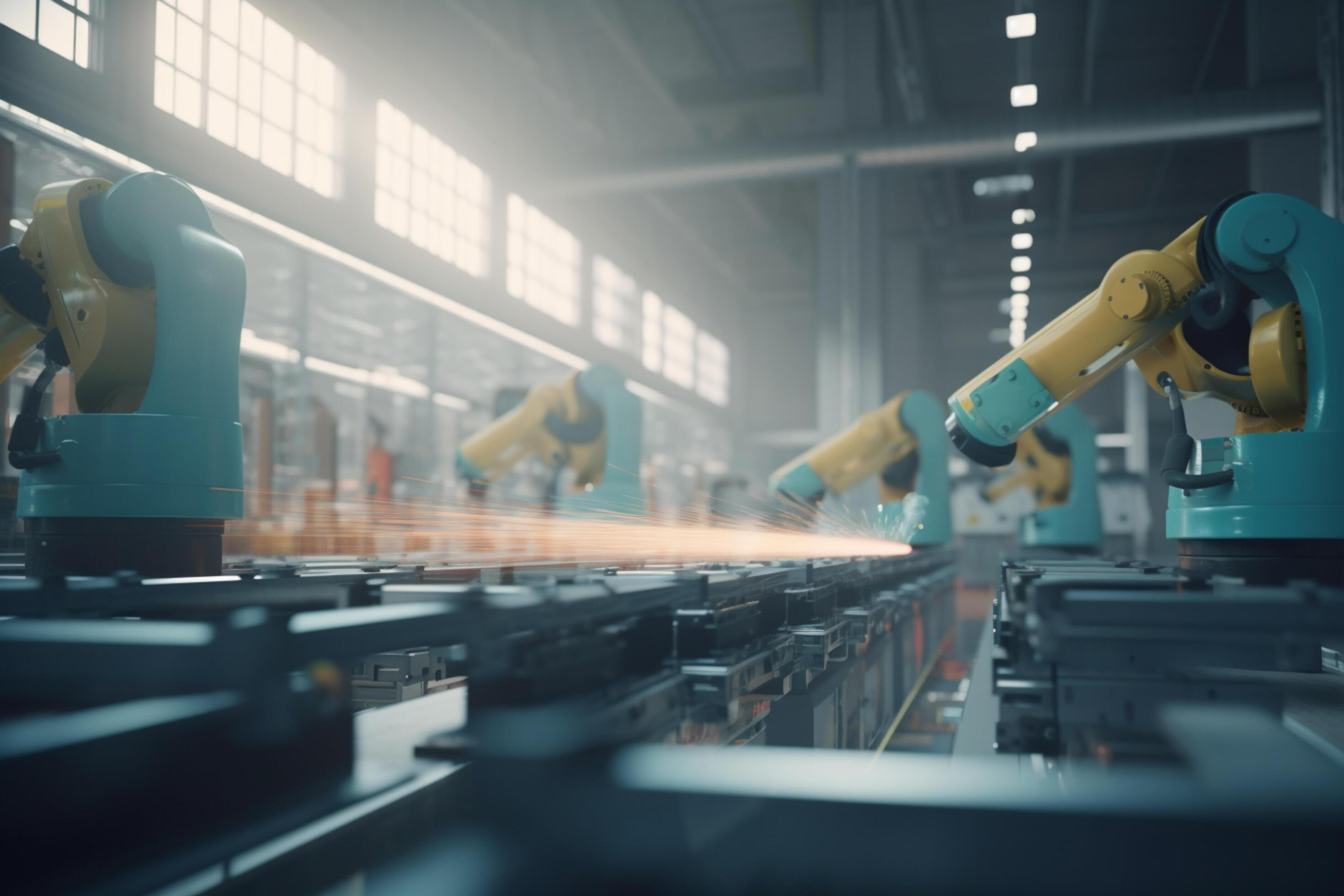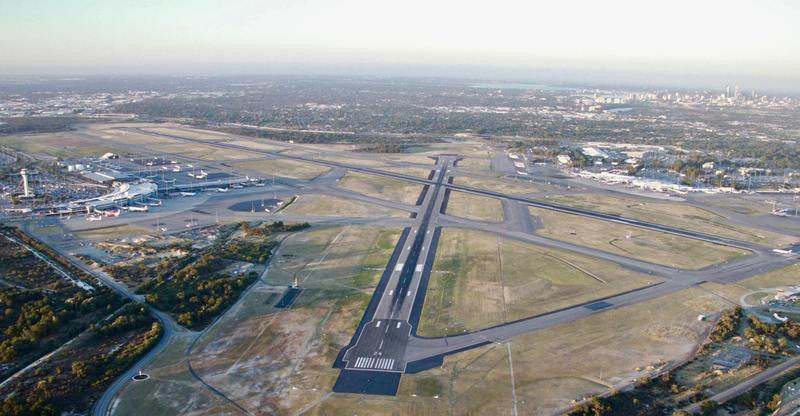The manufacturing industry is undergoing a dramatic transformation, driven by the rapid advancements in artificial intelligence (AI) and robotics. AI-powered robots are becoming increasingly sophisticated, capable of performing tasks that were once considered the exclusive domain of humans. This technological revolution is reshaping the manufacturing landscape, bringing with it both opportunities and challenges.
The Rise of AI-Powered Robots in Manufacturing
AI-powered robots are already making a significant impact on manufacturing operations. They can perform tasks with greater speed, accuracy, and consistency than human workers, leading to improved efficiency and productivity.
One key area where AI-powered robots are making strides is in assembly line automation. Robots are now capable of assembling complex products with precision and speed, reducing the need for human intervention and minimizing errors. This is particularly beneficial for industries that require high-volume production, such as automotive manufacturing.
Another area where AI-powered robots are proving their worth is in quality control. AI algorithms can be used to analyze images and data from production lines, identifying defects and inconsistencies in real-time. This allows manufacturers to address issues before they become major problems, preventing costly rework and improving product quality.
The Impact on Jobs and the Future of Work
The increasing adoption of AI-powered robots in manufacturing raises important questions about the future of work. While some fear that these robots will displace human workers, others argue that they will create new opportunities and enhance existing jobs.
The reality is likely to be a complex mix of both. Some jobs that are highly repetitive or dangerous are likely to be automated, while others will be augmented by robots. For example, robots can work alongside human workers, handling heavy objects or performing repetitive tasks, freeing up human workers to focus on more complex and creative tasks.
The Rise of Collaborative Robots (Cobots)
Collaborative robots, or cobots, are designed to work alongside humans, not replace them. They are typically smaller and more flexible than traditional industrial robots, and they are equipped with sensors and safety features that allow them to operate safely in close proximity to humans. Cobots can assist with tasks such as picking and placing, material handling, and machine tending, enhancing productivity and freeing up human workers to focus on higher-value activities.
Preparing for the Future of Work in Manufacturing
As AI-powered robots become more prevalent in manufacturing, businesses need to adapt to this changing landscape. This includes investing in training and development programs to equip workers with the skills they need to work alongside robots and thrive in a more automated environment.
Here are some key strategies for businesses to consider:
- Upskilling and Reskilling: Invest in training programs to help workers acquire new skills related to AI, robotics, data analysis, and other emerging technologies.
- Fostering Collaboration: Encourage collaboration between human workers and robots, creating a work environment where both humans and machines can contribute to achieving shared goals.
- Adopting a Growth Mindset: Embrace innovation and be willing to adapt to the changing demands of the manufacturing industry.
The Future of Manufacturing is Bright
The rise of AI-powered robots is a transformative force in the manufacturing industry. While it presents challenges, it also offers enormous opportunities for increased efficiency, productivity, and innovation. By embracing this technological revolution and preparing their workforce, businesses can position themselves for success in the future of manufacturing.
This is not a dystopian future, but a potential for increased prosperity, where robots enhance human capabilities and create new opportunities. The future of manufacturing is bright, and it is in our hands to shape it.
Let’s embrace the potential of AI and robotics and build a future where humans and machines work together to create a better world.


















